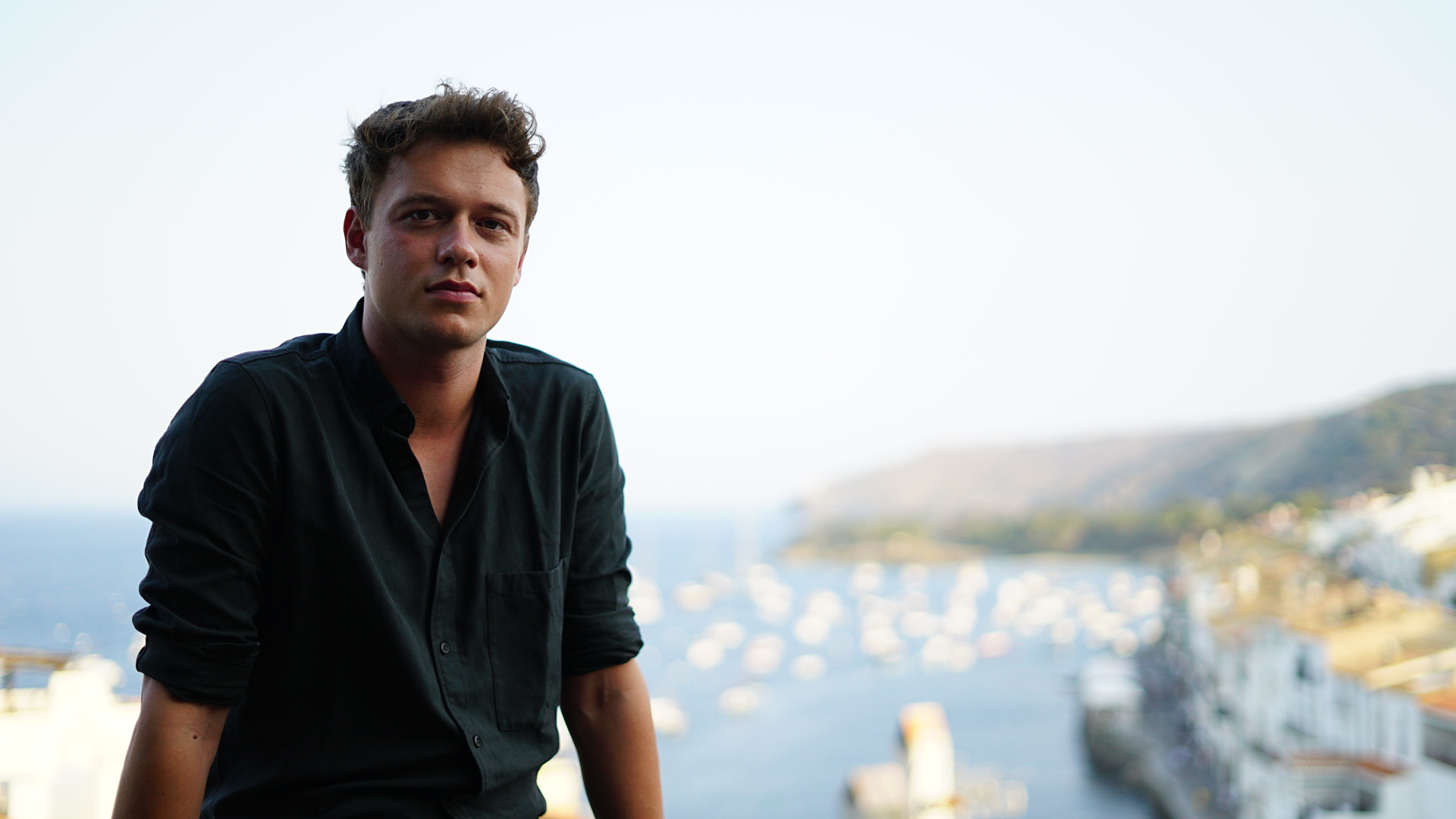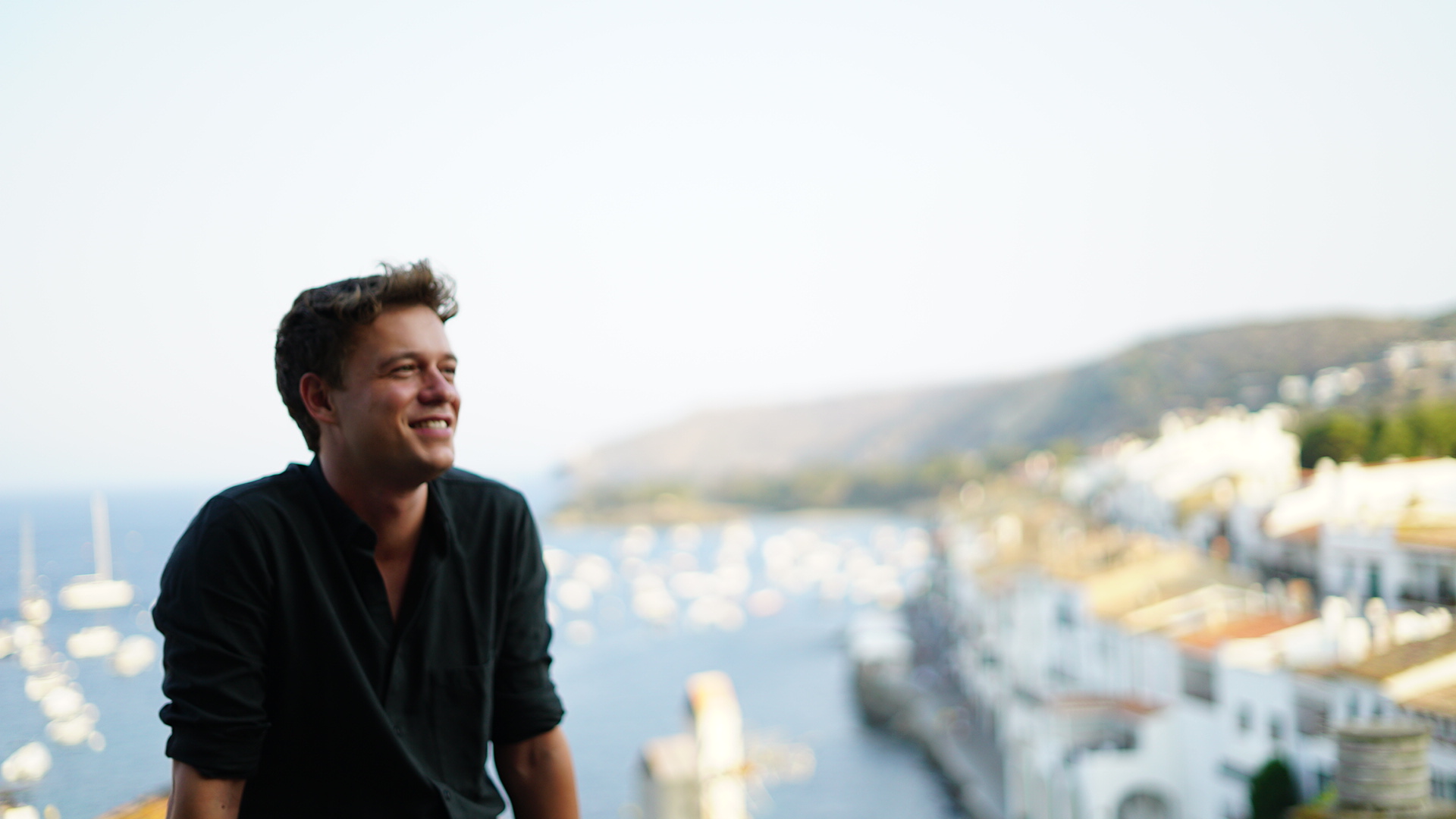It's hard to lose count of how many languages one person speaks. But when it comes to Alex Rawlings, you can actually lose track. There's English, Greek, Russian, Spanish, Catalan, Afrikaans, Hebrew....the list goes on. Having studied at least 15, and tested for fluency in 11, Alex is a polyglot if ever there was one.
He was named Britain's "Most Multilingual Student" in 2012. He has written two books about language. Also on the list of praiseworthy life achievements, Alex taught workshops at Fluent City in 2015 😎.
We had the chance to catch up with him recently. Here's what he told us.

1. Do you have different personalities in different languages?
To be totally honest with you, I used to think I did. My great aunt, who was Lebanese and married my Greek uncle while living in Egypt before moving with him to Athens, spoke five languages fluently and once told me "Chaque langue qu'on parle est une autre personalité" ("Every language we speak is a different personality"). Some languages make you more extroverted, others make you more introverted, and so on. This maxim strongly influenced the way I experienced multilingualism for a long time, until I realized that it simply wasn't true. Actually, once I spoke a language well enough to adequately express the nuances of my personality, I would experience a so-called "personality shift." At first, I used a more exaggerated accent, gesticulated more (or less) while speaking, and adopted certain cultural customs to cover for feeling self-conscious about my pronunciation, grammar mistakes and gaping gaps of knowledge. As I became more proficient though, I gradually felt that I could just be myself. That is how I feel currently about my most advanced languages – Greek, German, Russian, Spanish, Afrikaans and Catalan. If you ever have the misfortune of catching me speaking Portuguese though, I'll apologize in advance for the fact that my voice drops three octaves and adopts the intonation of an elastic band, while I gently gyrate my hips to whatever samba music I have to play in my head in order to get "in character." Tou trabalhando nisso! (I'm working on it!)
2. What are your favorite words that aren't precisely translatable into English?
My favorite words are always those that aren't precisely translatable into English. Grappling with the endless nuances of translation is one of my favorite pastimes. Languages encapsulate culture. They're like a code that a group of people all sign up for, in order to explain and share their lives together. Sometimes it's just the subtlety of a dictionary definition that doesn't quite convey what's going on. In Greek the verb παθαίνω might be translated as "to suffer something", yet it doesn't quite capture the emotion, defensiveness, love and hysteria of a Greek mother running along the beach towards her crying child clutching his scabbed knee, screaming "Μα τι έπαθες, παιδί μου" ("But what injustice have you suffered, my child??") In English, mothers would just say, "What happened?"
3. Some people think it's too late to learn a language once you're an adult. Are they wrong? Do you have any stories of people who prove this isn't true?
Claiming that you can't become multilingual as an adult because you never learned as a child is like saying the reason you're an obese 30 year old is because your parents never signed you up for cross-country club when you were a teenager. Yes, the circumstances of our childhood influence our lives as adults, but we are not held captive by them. Just as it's highly possible to get into fitness and weight loss as an adult even if you only ever ate chocolate bars and sugary drinks as a child, it's possible to become multilingual as an adult. My favorite example of this is Mary Hobson, an English lady who at the tender age of 56 decided to start teaching herself Russian. Over the course of a few years, she went on to complete a PhD in Russian literature, and her translations of Pushkin's poetry won awards. The analogy with exercise is actually not that facetious. The brain is like a muscle. As you train it, it grows, expands, and takes on greater capacity to remember more things. Just don't expect any overnight results or believe any internet fads promising you fluency in x number of weeks or months. Multilingualism is a lifelong endeavor, and so you should prepare to enjoy the ride for the long term.

4. You advocate consuming less English in order to encourage multilingualism. What are your go-to resources - do you have a favorite French newspaper, Greek YouTube channel, or Spanish illustrator, for example? Where do the world's polyglots go to keep up their language skills?
I really borrow from a bit of everything. Recently, having been made painstakingly aware of the shortcomings of my Portuguese by a bunch of Brazilian friends I made here in Barcelona, I've been religiously listening to a podcast called Carreira sem Fronteiras. It's 30-minute conversations with interesting Brazilians who have moved to foreign countries. They discuss their experiences, challenges, things they miss about Brazil, and the pleasant surprises of working abroad. To say it's been eye-opening would be an understatement. My morning news routine always consists of a daily scan of major newspaper headlines from Spain, France, Germany, South Africa, the Netherlands, Greece and of course my home island of Britain. At first it might feel forced or even pretentious to do something like that, but give it six to eight weeks and it'll feel like second nature. Nowadays I can't feel like I've really grasped a news story until I've read it in at least three different languages, and thought about the different perspectives that our beautiful world can encompass.
5. What are the most dramatic ways in which you noticed that learning a new language changed your point of view about something?
The year I spent living in Russia with a host family was life-altering, at 20 years old. For the first time, a mirror was held up to every single belief, experience and cultural phenomenon I'd previously taken for granted. With my host family, I watched Putin's re-election, Pussy Riot's imprisonment, and the gradual implementation of the anti-LGBT propaganda laws for which Russia is sadly now so infamous. I wouldn't say it fundamentally changed the core values I've always held dear, but it certainly helped me understand why I'd taken them for granted, and perhaps why in the somewhat dystopian years that have followed in the UK, the US, Brazil and elsewhere, it's so important to cling onto them and stand up for them given the appropriate opportunities.
6. What are you up to now?
Unimpressed by the prospect of political, linguistic and cultural isolation in post-Brexit Britain, I decided to pack my bags and book a one-way ticket to Barcelona at the end of last year and pursue a career as a writer, journalist and documentary filmmaker. Needless to say, the first six months were pretty tough, but as I committed more and more to my new city, gradually I found a home here. I couldn't be happier living next to the sea, eating too many patates braves (patatas bravas elsewhere in Spain), and speaking a minimum of three to four languages every single day. I most prolifically document my day-to-day life on Instagram, although I also tweet articles and share anecdotes over on my Twitter.

 Spanish
Spanish
 French
French
 Italian
Italian
 Arabic
Arabic
 Portuguese
Portuguese
 German
German
 Chinese
Chinese
 Japanese
Japanese
 Russian
Russian